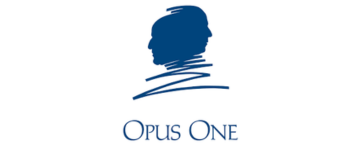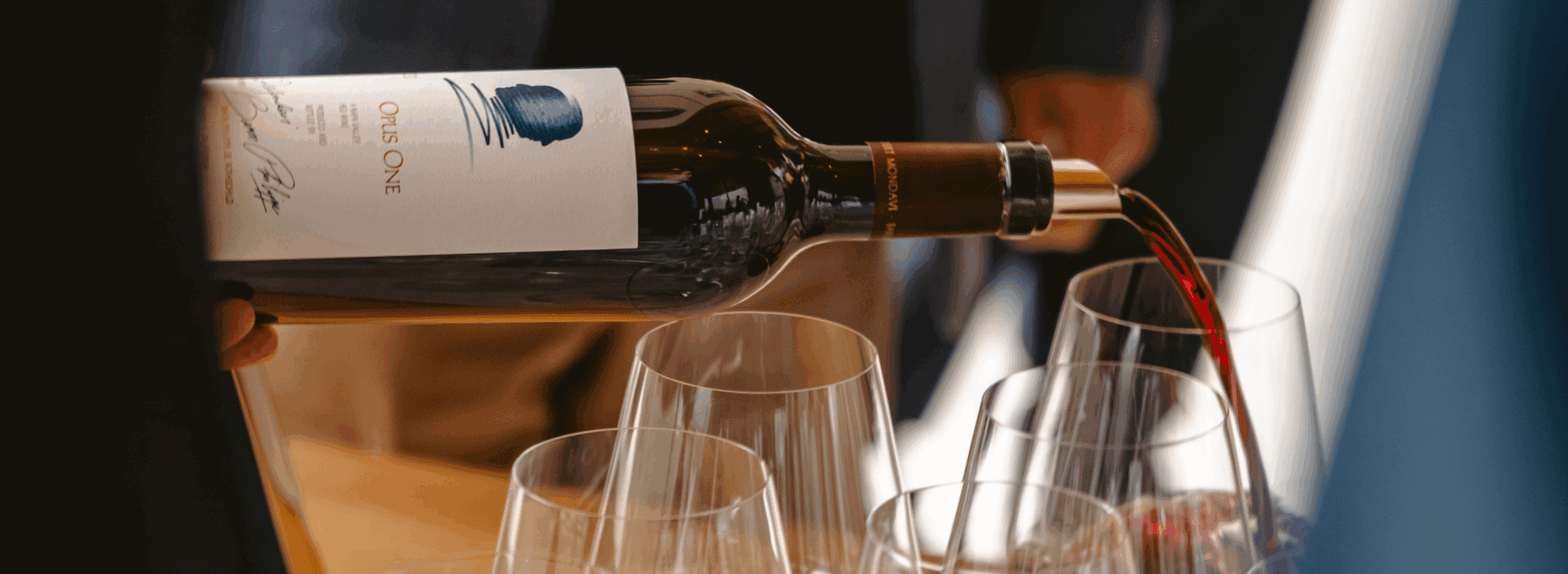PREMIUM DRINKS
OPUS ONE WINERY
Opus One is the realized dream of two men: Baron Philippe de Rothschild of Chateau Mouton Rothschild in Bordeaux and Napa Valley vintner Robert Mondavi. Together, the brand's founders set out to create a single wine dedicated to the pursuit of uncompromising quality. This singular mission shapes every vintage, today and for generations to come.
SUSTAINABILITY PURPOSE
Co-founder, Baron Philippe de Rothschild, famously remarked, “Making a great wine is easy, it’s just the first 100 years that are difficult.” As Opus One approaches the halfway mark of that century in 2029, the winery reflects on its journey with a clear vision for the future. In 2021, the Opus One team united to craft a 2030 Vision – a roadmap that identifies the behaviours and initiatives most vital to its employees, community, and the planet. A key outcome of this vision was the commitment to being globally responsible, embedded across every facet of the organisation, from vineyard to table. As both farmers and artisans, Opus One is deeply invested in the stewardship of its estate and the broader environment. The winery recognises that sustainable practices not only enhance the quality of its wines but also benefit its neighbours and customers. This ethos is reflected in a culture of conservation and mindful consumption, with dedicated efforts in energy efficiency, regenerative farming, water conservation, waste reduction, sustainable transportation, responsible purchasing and thoughtful food practices. Opus One’s sustainability journey is a testament to its enduring values – preserving tradition while embracing innovation to ensure a thriving future for generations to come.

Established
1978
Headquarters
Oakville, CA
First certified
2025
Employees
125-150
Categories
Wine
Website
Distribution
Global
Case Studies

BIODIVERSITY

Opus One Winery integrates biodiversity at the heart of its farming philosophy. The estate has embraced regenerative practices across its vineyard blocks, applying compost blends rich in organic material and biochar to enhance soil vitality. Cover crops are strategically selected and seeded to stabilise soil aggregates, increase organic matter, and boost microbial diversity. In partnership with local graziers, Opus One incorporates rotational sheep grazing to fertilise the land naturally and reduce the need for mechanical mowing. Additionally, the introduction of bee colonies and the transition to native, drought-resistant plants in landscaped areas support pollinator habitats and ecological resilience. Soil health assessments and carbon measurements, such as POX-C, guide ongoing improvements. These initiatives demonstrate Opus One’s commitment to cultivating a thriving, self-sustaining ecosystem that enhances both vineyard performance and long-term environmental stewardship.

OPPORTUNITY FOR ALL

Opus One Winery fosters a workplace rooted in inclusion, collaboration, and mutual respect. The company embeds strong DEI principles into its hiring, onboarding, and leadership development frameworks, ensuring equal pay and advancement opportunities for all employees. Its partnerships with women-led businesses and diverse suppliers reflect a broader commitment to equity beyond the vineyard. The work environment is intentionally structured to promote work-life balance, well-being, and long-term employee engagement. New hires experience an inclusive and comprehensive onboarding process that integrates them into a culture of transparency and shared purpose. Accessibility and inclusive communication are embedded throughout the organisation, from internal policies to guest experiences. While Opus One’s global reputation is built on excellence in winemaking, its enduring strength lies in the way it values people, empowering a diverse workforce and fostering a collaborative environment that celebrates difference as a driver of innovation and sustainability.

CORPORATE SOCIAL RESPONSIBILITY

At Opus One Winery, corporate social responsibility is woven into every aspect of the business, guided by three pillars: people, climate, and water. The organisation operates entirely on renewable electricity and has implemented carbon capture during fermentation to reduce greenhouse gas emissions. Sustainable water practices include rainwater harvesting, dry farming methods, and the installation of low-flow fixtures. Beyond environmental efforts, Opus One minimises its footprint through green packaging solutions like recycled cardboard, biodegradable materials, and soy-based inks. The company is also deeply engaged with its local and global communities, supporting education, conservation, and wellness initiatives. Its vineyard management is informed by ecological data and rooted in regenerative agriculture, which promotes healthy soils and reduced input use. This holistic approach positions Opus One not only as a world-class wine producer but as a responsible corporate citizen dedicated to the well-being of future generations and the planet.
Opus One Winery integrates biodiversity at the heart of its farming philosophy. The estate has embraced regenerative practices across its vineyard blocks, applying compost blends rich in organic material and biochar to enhance soil vitality. Cover crops are strategically selected and seeded to stabilise soil aggregates, increase organic matter, and boost microbial diversity. In partnership with local graziers, Opus One incorporates rotational sheep grazing to fertilise the land naturally and reduce the need for mechanical mowing. Additionally, the introduction of bee colonies and the transition to native, drought-resistant plants in landscaped areas support pollinator habitats and ecological resilience. Soil health assessments and carbon measurements, such as POX-C, guide ongoing improvements. These initiatives demonstrate Opus One’s commitment to cultivating a thriving, self-sustaining ecosystem that enhances both vineyard performance and long-term environmental stewardship.
Opus One Winery fosters a workplace rooted in inclusion, collaboration, and mutual respect. The company embeds strong DEI principles into its hiring, onboarding, and leadership development frameworks, ensuring equal pay and advancement opportunities for all employees. Its partnerships with women-led businesses and diverse suppliers reflect a broader commitment to equity beyond the vineyard. The work environment is intentionally structured to promote work-life balance, well-being, and long-term employee engagement. New hires experience an inclusive and comprehensive onboarding process that integrates them into a culture of transparency and shared purpose. Accessibility and inclusive communication are embedded throughout the organisation, from internal policies to guest experiences. While Opus One’s global reputation is built on excellence in winemaking, its enduring strength lies in the way it values people, empowering a diverse workforce and fostering a collaborative environment that celebrates difference as a driver of innovation and sustainability.
At Opus One Winery, corporate social responsibility is woven into every aspect of the business, guided by three pillars: people, climate, and water. The organisation operates entirely on renewable electricity and has implemented carbon capture during fermentation to reduce greenhouse gas emissions. Sustainable water practices include rainwater harvesting, dry farming methods, and the installation of low-flow fixtures. Beyond environmental efforts, Opus One minimises its footprint through green packaging solutions like recycled cardboard, biodegradable materials, and soy-based inks. The company is also deeply engaged with its local and global communities, supporting education, conservation, and wellness initiatives. Its vineyard management is informed by ecological data and rooted in regenerative agriculture, which promotes healthy soils and reduced input use. This holistic approach positions Opus One not only as a world-class wine producer but as a responsible corporate citizen dedicated to the well-being of future generations and the planet.


PATHWAY TO HIGHER STANDARDS
Following its certification, Opus One has established objectives to integrate its goals into collaborative agreements with suppliers as the most effective way to amplify its impact. The company is also committed to achieving self-sufficient power generation by 2035.

